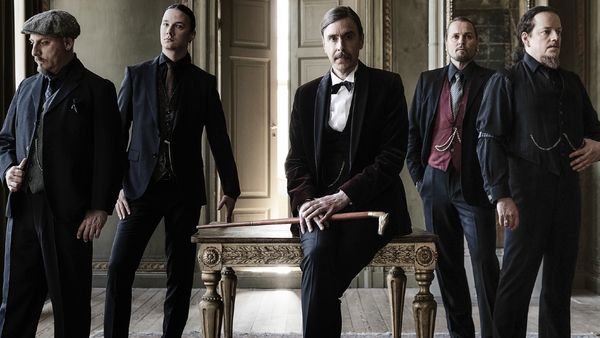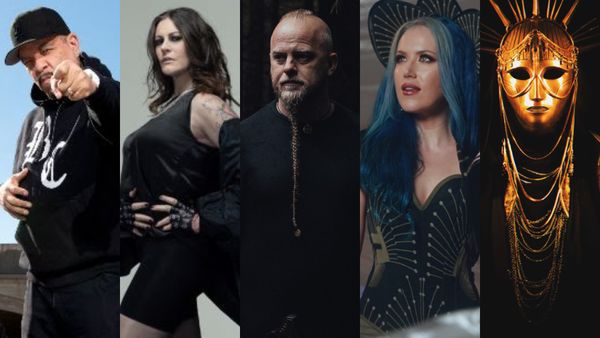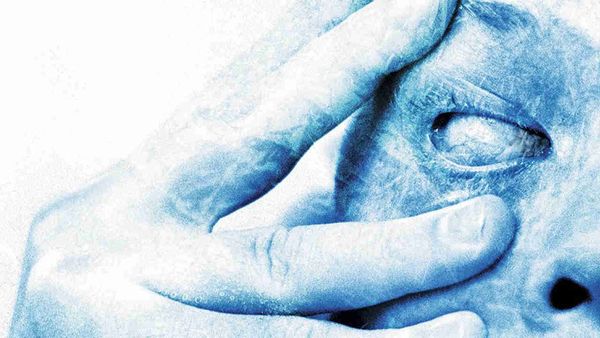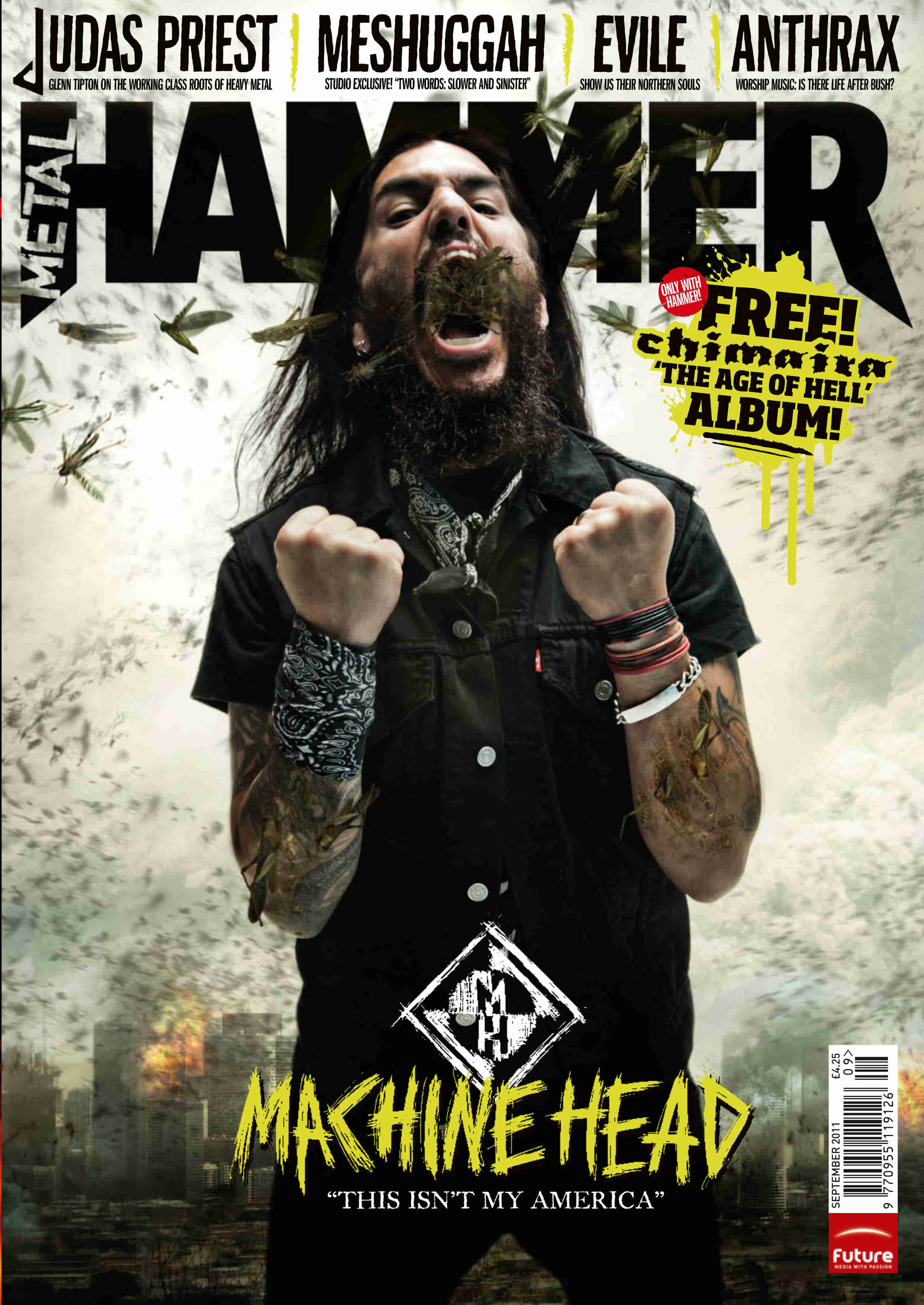
Opeth’s new album, The Last Will And Testament, sees mainman Mikael Åkerfeldt bringing back old school death growls, to the delight of many fans. But back in 2011, the Heritage album found the Swedish prog metal kingpins jettisoning them in the first place. Why? As Åkerfeldt told Hammer at the time, there might not have been an Opeth album otherwise.
For many people, Bloodstock 2010 was more Mudstock, after torrential rain had turned the Catton Hall site into the proverbial mudbath. As nightfall began to descend, five young men prepared to take the stage. After a storming set from Meshuggah, perhaps it wasn’t too surprising that feelings of nervousness abounded. But for Opeth, the evening of August 13, 2010 brought with it an even greater sense of occasion.
Heaven & Hell, the reformed Ronnie James Dio-fronted Black Sabbath had been scheduled to headline. However the band had cancelled all live plans for the summer of 2010 on May 4. Tragically, Ronnie passed away 12 days later. And now, barely three months on, Opeth, who had headlined in 2008, had boldly agreed to step into the breach left by the original headliners, to headline the now-named Ronnie James Dio Stage.
Although somewhat ring-rusty, Opeth diligently opened with Damnation’s Windowpane and the epic The Grand Conjuration from Ghost Reveries, warming to their theme. Then, following Blackwater Park’s Bleak, Mikael Åkerfeldt, sans guitar, stepped up to the microphone.
“I feel a bit emotional in a way. And a bit nervous, because I can’t really sing. And I’m going to sing a song by one of the greatest singers of all time. It’s quite intimidating…”
Mikael said more, of course, his trademark self-deprecating humour perhaps masking those nerves. “Bear with me if I sing like shit… We’re going to try it anyway, because we fucking love Dio…” And Opeth launched into a highly emotional version of that Dio’s Catch The Rainbow. For the record, and you can check this on You Tube, Mikael sings beautifully.
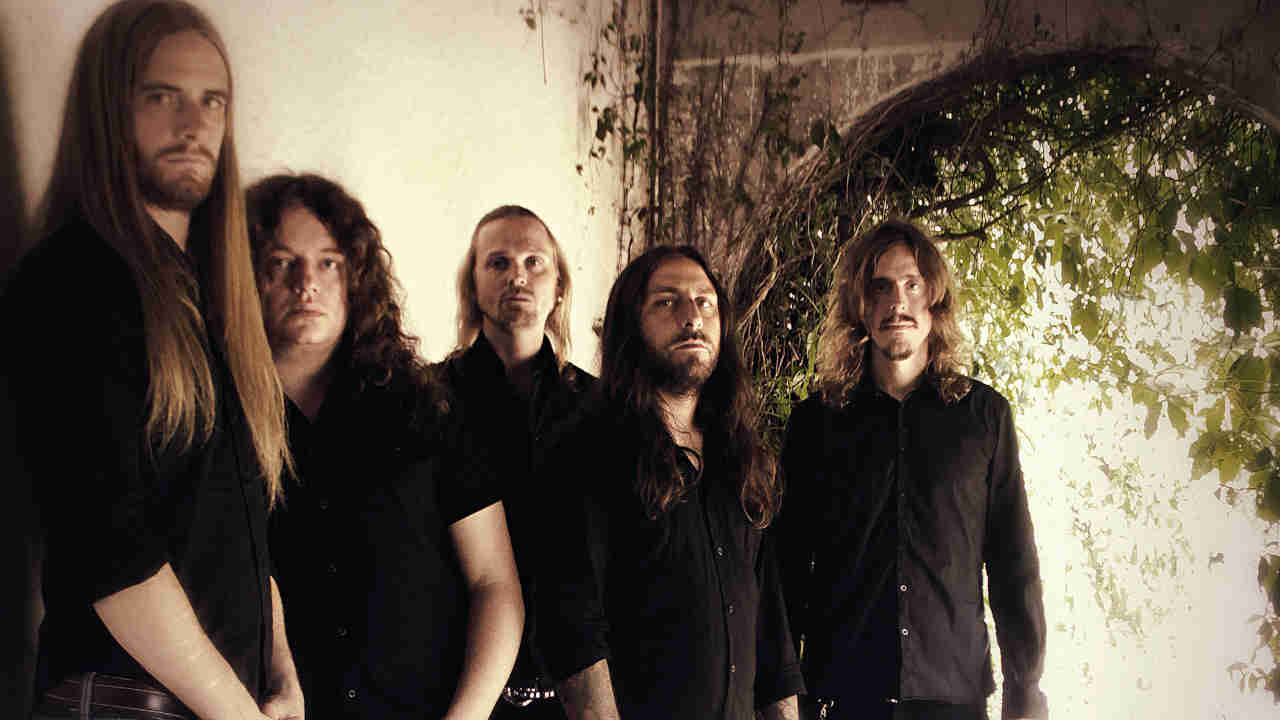
Update to July 2011, and Hammer is sat talking to Mikael and guitarist Fredrik Åkesson as the band prepare to release their new album, Heritage. And we’re talking about that Bloodstock performance, and more importantly that version of Catch The Rainbow.
“It was a pretty emotional show for us,” muses Mikael. “Not just because we stood in for Heaven & Hell and paid tribute to Ronnie. I think it was one of the few times we had a band hug before we went on…”
His voice trails off and he sits looking thoughtful for a moment.
If you’re wondering quite why, in the wake of the release of the 10th Opeth album, we sit chatting about an old Opeth gig and the late, great Ronnie James Dio, allow us to enlighten you. First up, Heritage features Opeth’s own tribute to Dio in the form of the rollickingly enjoyable Slither, a track on which Fredrik proudly admits that “I was just told to play a bit like Ritchie [Blackmore] would have done. I had a great time.”
It sounds like he did too, with Blackmore-esque flourishes that bring to mind, amongst others, Rainbow’s finest hour Stargazer.
“It felt natural,” says Mikael. “Obviously we’d done Catch The Rainbow, but we’re such big Rainbow and Dio fans that we felt we should add some- thing to this new record. We’re pretty pleased with the way it came out.”
The other, more sombre reason for recalling the show, and that rare group hug, is that one member of the band from the August 2010 show is no longer with Opeth. As the band were wrapping recording sessions for Heritage, Mikael took the bold decision to sack keyboard player Per Wiberg.
“We’d reached a position where we could not continue with the situation as it was,” reflects the band leader of Per, who had toured with the band back in 2003 and became a full member in 2005. “There was a massive communication problem and it was getting worse. We used to be really good friends but it had got to the point where I was wondering if he had a problem with me because I’m the band leader, or whether he didn’t like the music, but whatever it was, he wasn’t saying. We asked him to get involved in the writing and things but he just wasn’t interested. What it did do, though, was create a really bad atmosphere in the studio. We just couldn’t carry on like that. So I sacked him.”
Per’s marching orders came from Mikael, via email. A situation for which the singer expresses some regret. After all, as the old adage goes, email in haste, repent at leisure.
“I haven’t actually spoken to him since he left,” he notes dryly. “I sent him the email sacking him, and then really started to panic about it. I mean, I was angry about the situation, which is why I emailed him. But strangely what it did was seem to open him up and we finally began to talk about the issues that had been building for the past few years. But in the end I did ask him if he’d have left the band anyway and he told me he would’ve done.”
Per’s departure (he’s since been replaced by ex-Yngwie Malmsteen keyboard player Joakim Svalberg) is represented on the evocative cover painting by long-time Opeth collaborator Travis Smith, with the band’s heads appearing within a central tree, only with Per’s own head falling from the tree. A tad harsh?
“I don’t know, I think it represents the fact that he’s on the album but no longer in the band,” offers Mikael.
And how did Per react?
“I don’t think he was very happy,” sniggers Fredrik, who glances at Mikael, also giggling, with the air of a mischievous child.
Ah yes, the album sleeve. Striking – more so than any Opeth album cover to date. And harking very much back to the classic prog and hard rock albums of the 70s, it created quite a stir when Hammer revealed online last month. Because Heritage is, of course, Opeth’s prog rock album. Gone are Mikael’s death metal vocals, replaced by an excellent clean and assured vocal performance. Gone too is much of the metallic riffing of the band’s earlier days. And in their place is a heady mix of boisterous hard rock, inventive prog and even full-on jazz-fusion in the bonkers time changes of Nepanthe. It is not, it is perhaps worth pointing out, da metulz!
“I’m not certain that,” muses Mikael, “had we not made this record the way it sounded, that there would have been another Opeth album! I did actually start writing music that sounded like a follow-on from Watershed, but realised that it wasn’t what I should be doing. So I started all over again; what came out of me is exactly how I wanted Opeth to sound on this record.”

In reality, Heritage actually sounds like a natural progression from Watershed. There’s been a progressive element to Opeth’s sound ever since they released the cunningly diverse Orchid in 1995. In fact ever since Porcupine Tree’s Steven Wilson, who mixed Heritage, struck up a friendship with Mikael after the release of 1999’s Still Life, co-producing the band’s prog metal masterpiece Blackwater Park as well as Deliverance and Damnation, Mikael has steered Opeth ever more towards the sound that appears on Heritage. Equally, Heritage still rocks. “Oh, there are guitars on it then,” offered a relieved journalist at the hearing sessions Hammer attended, when the beautiful piano intro and title track led into the ballsy The Devil’s Orchard, replete with ‘God is dead’ howls from Mikael. It just rocks in a different way. Will Opeth’s metallic legions be up in arms?
“I think we lost them a while ago,” notes Mikael. Fredrik agrees. “This isn’t the first album where we haven’t had any growling vocals. Damnation was a very clean, progressive album. There was even a ballad on Orchid. We’ve always had those diverse elements to our sound and our fans have always accepted it. If all they want is the kind of really heavy death metal that we were all into when we got into music they probably lost interest in what we were doing a long way back. Our audience has been getting a lot more diverse over the years anyway. These days there’s always a lot more Dream Theater and Porcupine Tree shirts than In Flames or At The Gates.”
Is there an argument in the idea that Bloodbath, the Swedish DM super- group Mikael helped form in 1998, now offers the singer the chance to flex his DM muscles, allowing him to expand the Opeth sound? He thinks not.
“Who’s in Bloodbath?” he laughs. “I don’t even know if I am at the moment! We haven’t released an album since 2008 [The Fathomless Mastery]. No, Bloodbath is just me mucking around with some friends like Jonas [Renske] from Katatonia. It’s not something we take too seriously. And it certainly doesn’t affect how Opeth sound. Opeth sound like they do because in our mind, that’s how we’re supposed to sound.”
That Opeth sound does, however, allow the band a chance to try out something a little different when it comes to taking Heritage out on the road. Although touring in the States with long-time buddies Katatonia, the UK tour in November will see fellow Swedish prog metallers Pain Of Salvation joining the band.
“We’ve been thinking about playing Heritage live and yes, we want to perform as much of it as possible,” admits Mikael. “So that means we’ve been looking back at our older albums and choosing material that seems to fit, musically. So you can expect to hear quite a few things that we haven’t played in a while. In some cases we’ll probably be playing some stuff that we’ve never played live before.
“To us it’s exciting because it seems to have helped revive the creative process for us, rather than doing the same thing over and over again. It makes everything exciting for us again and that in itself makes me realise that in Heritage we did exactly the right thing in progressing forward and developing our sound.”
That certainly makes the Opeth future sound like a mouthwatering prospect for all but the most stubborn of fans. Will we be seeing you down the front?
Originally published in Metal Hammer issue 222, August 2011






